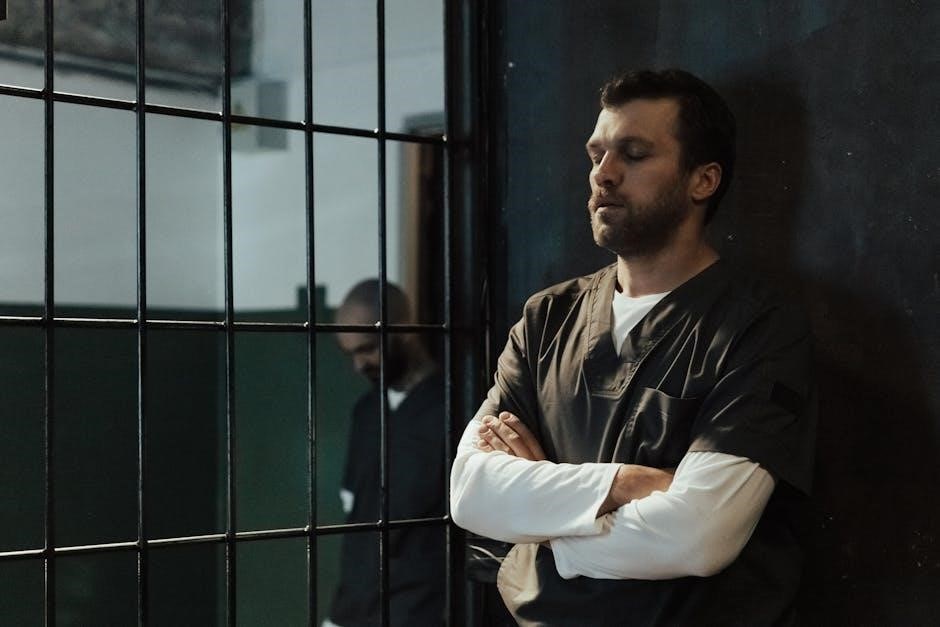“Ex-Husbands Regret” explores the emotional journeys of individuals navigating divorce, remorse, and second chances․ This captivating narrative delves into themes of love, loss, and personal growth, offering insights into the complexities of modern relationships and the human capacity for redemption․
Overview of the Concept
“Ex-Husbands Regret” delves into the emotional and psychological aftermath of divorce, focusing on the remorse and self-reflection experienced by former partners․ This concept explores themes of lost love, personal growth, and the longing for reconciliation․ Through real-life stories and fictional narratives, it highlights the complexities of relationships and the often-unexpected consequences of separation․ The idea is central to understanding how individuals process guilt, loneliness, and the desire to reconnect․ By examining these dynamics, “Ex-Husbands Regret” offers a profound look at human vulnerability and the quest for redemption in the face of past mistakes․

Relevance in Modern Relationships
“Ex-Husbands Regret” resonates deeply in today’s society, where divorce rates are high and emotional complexities abound․ The concept sheds light on the universal human experience of remorse and longing after separation․ By exploring real-life stories and fictional narratives, it provides insight into the emotional struggles of former partners․ This theme is particularly relevant as modern relationships face increasing pressures, such as financial stress, communication breakdowns, and personal ambitions․ The idea of regret and reconciliation offers a mirror to contemporary issues, encouraging reflection on how relationships evolve and the importance of addressing past mistakes․ It serves as a reminder of the enduring power of love and the possibility of redemption in a fast-changing world․
Common Reasons for Regret
Emotional detachment, financial instability, and lack of communication are primary factors leading to regret in ex-husbands, often stemming from unresolved issues during the marriage․
Emotional Detachment
Emotional detachment often leads to regret in ex-husbands, as they realize the lack of connection during the marriage․ This disconnect can stem from unaddressed emotional needs, leading to feelings of isolation․ Many ex-husbands reflect on how their inability to communicate effectively created a chasm in the relationship․ For instance, Corynn’s ex-husband, Elliot, grappled with regret after losing her, highlighting how emotional detachment can result in lost opportunities for love and connection․ This emotional void often becomes apparent only after the divorce, prompting self-reflection and a desire to mend past mistakes․ Emotional detachment is a recurring theme in many ex-husbands’ journeys of regret and personal growth․

Financial Instability
Financial instability is a significant factor leading to regret among ex-husbands․ Many men struggle with the economic repercussions of divorce, such as reduced income, increased expenses, and debt․ For instance, Corynn’s ex-husband, Elliot, faced financial strain after their separation, which compounded his emotional regret․ Similarly, Ava’s ex-husband, Roman, grappled with financial challenges post-divorce, highlighting how economic instability can exacerbate feelings of remorse․ Financial instability often forces ex-husbands to reevaluate their past decisions, realizing the emotional and financial costs of their actions․ This financial strain serves as a harsh reminder of the consequences of divorce, prompting many to seek personal growth and financial recovery․
Lack of Communication
Lack of communication is a pervasive issue that often leads to divorce and subsequent regret․ Many ex-husbands reflect on how poor communication exacerbated misunderstandings and unaddressed issues․ For instance, Corynn’s ex-husband, Elliot, struggled with expressing his feelings, leading to emotional distance․ Similarly, Ava’s ex-husband, Roman, failed to communicate effectively, resulting in a breakdown of trust․ When communication falters, relationships crumble, leaving regret in its wake․ Ex-husbands often realize too late the importance of open dialogue, wishing they had addressed concerns sooner․ This lack of communication not only ends marriages but also haunts individuals, prompting them to seek redemption and personal growth․

Signs an Ex-Husband Might Regret the Divorce
Increased communication, expressions of remorse, and attempts to reconnect are common signs an ex-husband may regret the divorce, as seen in Corynn’s and Alicia’s experiences․
Increased Communication
Increased communication is a significant sign an ex-husband might regret the divorce․ After separation, if he initiates frequent calls, texts, or meetings, it may indicate unresolved feelings․ For instance, Corynn’s ex-husband, Elliot, reached out during a vulnerable moment, expressing his desire to reconnect․ Similarly, Alicia’s ex-husband showed remorse years later, acknowledging his past mistakes․ Such behavior suggests a longing to rekindle the relationship․ Increased communication often serves as a bridge to express remorse and seek forgiveness, highlighting a potential shift in his emotional stance toward the divorce․ This change can be a powerful indicator of regret and a desire for reconciliation․
Expressions of Remorse
Expressions of remorse are a clear indicator of an ex-husband’s regret․ This can manifest through heartfelt apologies, acknowledging past mistakes, or showing empathy for the pain caused․ For instance, Elliot’s plea to Corynn, “Let’s get married,” revealed his deep regret and longing for reconciliation․ Similarly, Jennifer Lopez’s ex-husbands have publicly expressed sorrow for their past actions, seeking forgiveness․ Such expressions often signify a genuine desire to mend the relationship and make amends․ Remorseful behavior, whether verbal or through actions, underscores a man’s regret and his hope for a second chance, demonstrating his emotional transformation and willingness to address past wrongs․
Attempts to Reconnect
Attempts to reconnect are a significant sign of an ex-husband’s regret․ This may involve reaching out unexpectedly, showing genuine interest in their former partner’s life, or making amends for past mistakes․ For example, Elliot’s heartfelt plea to Corynn, “Let’s get married,” highlighted his desire to rekindle their relationship․ Similarly, ex-husbands may try to reestablish emotional bonds by apologizing or expressing a willingness to change․ These efforts often stem from a deep sense of remorse and a longing to repair what was lost․ Such attempts demonstrate a commitment to healing and rebuilding trust, offering a potential path toward reconciliation and a second chance at love․

Psychological Impact on Ex-Husbands
Ex-husbands often grapple with guilt, self-reflection, and loneliness post-divorce, leading to emotional turmoil and a deep desire for reconciliation, as seen in Elliot’s regret and Alicia’s journey․
Guilt and Self-Reflection
Guilt often consumes ex-husbands as they reflect on past mistakes, realizing the emotional toll their actions took on their former partners․ Many, like Elliot, grapple with deep remorse, replaying moments they wish they had handled differently․ This self-reflection can lead to a profound understanding of their shortcomings, fostering personal growth․ For instance, Jennifer Lopez’s insights highlight how ex-partners may acknowledge their role in the relationship’s demise․ Such introspection becomes a catalyst for change, urging them to seek redemption and improve future relationships․ The weight of regret often pushes them to confront their flaws, striving to become better versions of themselves․
Loneliness and Isolation
Ex-husbands often experience profound loneliness and isolation following a divorce, as the absence of their former partner leaves a void․ This emotional distance can amplify feelings of regret, as they reflect on what could have been․ For instance, Elliot’s plea to Corynn, only to be met with her engagement, highlights the pain of lost opportunities․ Similarly, Corynn’s new path with someone else underscores the isolation Elliot endures․ Such scenarios illustrate how the end of a marriage can lead to a deep sense of solitude, prompting ex-husbands to confront the consequences of their actions and the fragility of relationships․ This isolation often serves as a harsh reminder of what was lost․
Desire for Reconciliation
The desire for reconciliation often emerges as ex-husbands confront the emotional aftermath of divorce․ Many begin to yearn for a second chance, driven by remorse and a deeper understanding of past mistakes․ For instance, Elliot’s heartfelt plea to Corynn, despite her new engagement, reflects the longing to reconnect․ Similarly, ex-husbands in various narratives express regret and seek forgiveness, hoping to rebuild lost relationships․ This desire often stems from a realization of what was lost and a wish to mend emotional bonds․ Such stories highlight the complex interplay of love, regret, and the enduring hope for reconciliation, even after separation․ This emotional journey underscores the human capacity for change and forgiveness․

Case Studies and Real-Life Examples
Real-life stories like Alicia’s resilience, Corynn’s newfound strength, and Jennifer Lopez’s candid reflections illustrate the complexities of divorce, regret, and the quest for reconciliation, offering profound insights into human relationships․
Alicia’s Journey
Alicia’s story is a poignant tale of resilience and hidden truths․ Married into a family that blamed her for childlessness, she endured immense emotional pain․ When her husband presented her with divorce papers, Alicia, though devastated, signed them and left․ Unbeknownst to everyone, she was pregnant․ Six years later, Alicia returned with her daughter, confronting a past she thought she had buried․ Her ex-husband, now filled with regret, yearned for her anew․ This narrative highlights the complexities of divorce, the weight of secrets, and the enduring power of love and forgiveness, offering a deeply human exploration of regret and reconciliation․
Corynn’s Experience
Corynn’s story is one of strength and transformation․ After her divorce, she embarked on a new path, finding love again with someone else․ Meanwhile, her ex-husband, Elliot, grappled with regret․ In a moment of vulnerability, Elliot pleaded with Corynn to marry him again․ With a gentle smile, she declined, revealing she was already engaged․ This encounter highlighted Corynn’s emotional resilience and her ability to move forward․ Her journey underscores the complexities of regret and the power of personal growth, as she remained empathetic yet firm in her decision, embodying independence and self-awareness in the face of past relationships․
Jennifer Lopez’s Insights
Jennifer Lopez has openly reflected on her past relationships, offering candid insights into her experiences with ex-husbands․ She emphasized her disinterest in revisiting old romances, focusing instead on personal growth and future possibilities․ Lopez’s honesty has stirred reactions, with some exes reportedly unhappy about her remarks․ Her journey highlights the importance of self-awareness and moving forward, showcasing resilience in the face of past challenges․ Lopez’s story serves as a reminder that true empowerment comes from learning and evolving, rather than dwelling on what could have been․

How to Move Forward
Moving forward involves self-reflection, setting boundaries, and seeking professional help․ Focus on personal growth, embracing new opportunities, and fostering healthier relationships to build a fulfilling future․

Self-Reflection and Growth

Self-reflection is a crucial step in moving forward, allowing individuals to acknowledge past mistakes and grow emotionally․ By examining their actions and attitudes, ex-husbands can identify patterns that led to regret․ This introspection fosters personal growth, enabling them to develop healthier relationship habits․ Many stories, like Jennifer Lopez’s insights, highlight how self-awareness leads to better decision-making and emotional maturity․ Growth involves embracing accountability and understanding the impact of their choices on others․ Through this process, individuals can rebuild trust and create stronger, more meaningful connections in the future․ Self-reflection becomes the foundation for a more fulfilling and regret-free life․
Setting Boundaries
Setting boundaries is essential for healing and rebuilding trust after a divorce․ Clear limits help individuals protect their emotional well-being and prevent past patterns from resurfacing․ For ex-husbands expressing regret, respecting boundaries ensures their efforts to reconnect are genuine and respectful․ Stories like Corynn’s experience show how maintaining boundaries can lead to healthier relationships․ It’s crucial to communicate these limits clearly and consistently, allowing both parties to heal without pressure․ Boundaries also provide a foundation for potential reconciliation, ensuring it’s built on mutual respect and understanding․ By setting boundaries, individuals can move forward with clarity and emotional safety, fostering a more balanced and respectful dynamic․
Seeking Professional Help
Seeking professional help is a crucial step in navigating the complexities of divorce and regret․ Therapy or counseling provides a safe space to process emotions, gain clarity, and develop healthier relationship patterns․ For ex-husbands grappling with remorse, professional guidance can help identify past mistakes and work toward personal growth․ Similarly, for ex-wives, therapy offers a platform to heal and rebuild self-esteem․ Stories like Alicia’s journey highlight the importance of external support in rebuilding trust and communication․ Professional help fosters a deeper understanding of oneself and others, enabling individuals to approach reconciliation with maturity and emotional readiness․ It’s a proactive step toward healing and creating a better future․
“Ex-Husbands Regret” offers a poignant exploration of love, loss, and redemption․ Through heartfelt stories and personal growth, it highlights the importance of learning from past mistakes to build a brighter future․

The Importance of Personal Growth
Personal growth emerges as a central theme in “Ex-Husbands Regret,” where characters navigate self-reflection and transformation․ Through their journeys, individuals confront past mistakes, embracing accountability and change․ This process fosters emotional maturity, enabling them to rebuild trust and relationships․ Stories like Alicia’s resilience after divorce and Corynn’s newfound strength highlight the power of growth․ By addressing inner flaws and adopting healthier behaviors, characters create opportunities for redemption and renewed connections․ Personal growth not only heals past wounds but also paves the way for meaningful second chances, illustrating that true change can lead to a more fulfilling and authentic life․
Learning from Past Mistakes
Learning from past mistakes is a pivotal aspect of healing in “Ex-Husbands Regret․” Through stories like Alicia’s resilience and Corynn’s newfound strength, characters confront their errors, fostering self-awareness and accountability․ These narratives highlight how acknowledging past wrongs can prevent future heartache․ For instance, Elliot’s regret over losing Corynn underscores the importance of understanding one’s role in relationship failures․ By examining these experiences, individuals gain valuable insights, enabling them to avoid repeating harmful patterns․ This process of reflection not only aids personal growth but also creates opportunities for healthier, more meaningful connections in the future․
Building a Better Future
Building a better future is a central theme in “Ex-Husbands Regret,” where characters like Alicia and Corynn redefine their lives post-divorce․ Alicia’s journey highlights independence and self-discovery, while Corynn’s path shows the power of moving forward with resilience․ These stories emphasize the importance of personal growth and creating meaningful connections․ By learning from past mistakes, individuals can foster healthier relationships and pursue fulfilling lives․ Jennifer Lopez’s insights further illustrate how letting go of negativity and embracing change can lead to a brighter future․ This narrative encourages readers to view divorce not as an end, but as a stepping stone to renewal and happiness․
